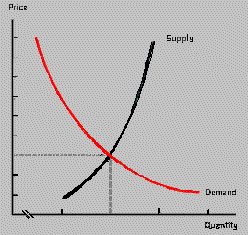
Tyler Cowen had an interesting essay in the New York Times on the “trade imbalance” between the U.S. and China (insightful, but I don’t follow his argument about whether the Chinese should or should not allow free capital movements) and Pete Boettke sheds light in the Christian Science Monitor on the consequences of FEMA handouts post-Katrina.
Hat Tip: Don Boudreaux










China’s free market reforms haven’t extended to banking, and banks have primarily extended loans to enterprises with political pull rather than on the basis of profit potential; hence the banking system is saddled with non-performing loans to the state sector, while the private sector has had to go elsewhere for capital. I gather Cowan’s point is that permitting free flow of capital from China would collapse the weak banking & financial system, in turn generating an economic depression/recession.
If so, *maybe* it makes sense — higher unemployment & falling incomes could lead to turmoil that would derail China’s development of a market economy.
The incompleteness of Chinese reform is the fundamental problem, not free movement of capital; and free movement of capital is a good thing. But in a mixed system one intervention counters another, and a partial relaxation of interventions can sometimes generate further economic dislocations, and create incentives for bad political responses.
I should also note: Tyler Cowen has been debating Brad Setser (of Roubini’s Global Econ Monitor); Setser has a response to Cowen where he argues that a revaluation of the RMB *would* have a noticeable effect on China’s exports, and also that there’s reason to doubt the “capital flight” story (although Setser agree with Cowen’s point about reforming the banking sector first).
See [http://www.rgemonitor.com/blog/setser/145072/]
To me, two things seem important — the U.S. does need to fix its finances; continued federal deficits are a problem. We can’t simply rely on foreign financing. And part of a smooth adjustment would seem to include price adjustments (including RMB/USD exchange rates) and increased emphasis in Chian on production for domestic markets — again, price signals via exhange rates should be part of the solution.